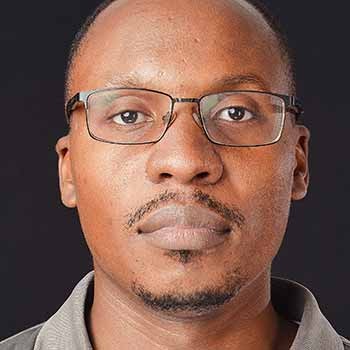At school I always wanted to be a civil engineer. But when it came time to apply for university there was limited availability of sponsorship for engineering students, so I chose a school that had space for me and studied accountancy. I succeeded in my ACCA studies, and also obtained a BSc in applied accounting from Oxford Brookes University, so I have no regrets.
I joined Deloitte as an audit associate in 2011 and stayed for four years. I then took a role with HLB Zambia as a manager, and have since risen through the positions of senior manager, director and now partner.
My original plan was to join the corporate world. But during my studies I was told that practice was an excellent entry point, as it would give me broader expertise in all industries. This would make it easier for me to integrate into the corporate world. However, I found I really enjoyed audit, so I stayed. I love my work and have no wish to move to the corporate world.
What I enjoy about my job is the exposure to almost every industry. It is not rigid and makes me feel unconfined. My biggest achievement has been becoming partner in an international firm at the age of 33.

I realised I should not be on a fault-finding mission but should aim for value addition
There are always restrictions on how practices can market themselves – for independence reasons. Therefore, referrals play a huge role for us. Much of the work we get is through participating in open tenders. This requires us to provide references from a specified number of companies to whom we have offered similar professional services.
A good partner is one who is readily available for both the client and colleagues, and who is easily reachable to provide support. After I became a partner, I realised that I should not be on a fault-finding mission, but instead should aim for value addition. I need to point out areas for improvement, so adding value for clients. As a partner I am the bridge between the client and the rest of the team.
The major challenge for entrepreneurs in Zambia is business financing. Banks are the first option for funding but, unfortunately, it is often a challenge for startups to meet the requirements for collateral and cashflow projections while facing volatile interest rates. Customers can also be scarce. Zambia is an import-dependent country, with many products obtained from neighbouring countries, so exchange rate volatility has a direct negative impact on costs.
With a new government making interventions, there is hope that better opportunities will be created. The creation of a ministry specifically for SMEs is a positive move, while the green economy and the science, technology and innovation initiatives should foster economic development and innovation.
I would like a law that curbs the desire among young people to get something for nothing. We need to reverse their attitude of ‘what can the government do for me?’ After independence in 1964, all Zambians had to do national service on leaving school. Everyone acquired life skills and realised that survival is dependent on hard work. If we introduced a version of national service again, we wouldn’t use the military to run it, but other relevant government ministries.
Away from my job I lead a local youth church organisation, with its message focused on self-identity. I am also a professional film producer, and enjoy video shooting and editing.


